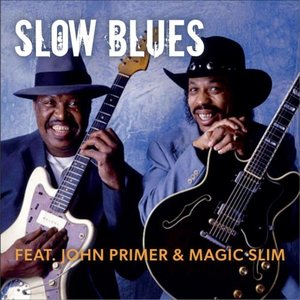Magic Slim - Slow Blues '2024

| Artist | Magic Slim Related artists |
| Album name | Slow Blues |
| Country | |
| Date | 2024 |
| Genre | Blues |
| Play time | 01:43:35 |
| Format / Bitrate | FLAC Stereo 891 Kbps
/ 44.1 kHz MP3 320 Kbps |
| Media | CD |
| Size | 660.85 Mb |
| Price | $5.95 |
Track list
01. You Put It on Me
02. 1839 Blues
03. So Easy to Love You
04. I Wonder Who (Who’s Gonna Be Your Sweet Man) [Live]
05. Bad Avenue
06. Country Boy
07. Just to Be With (Live)
08. Blues Behind Closed Doors
09. She’s Too Much
10. When I Met My Baby
11. Double Trouble (Live)
12. You Can’t Lose What You Ain’t Never Had
13. I’m a Bluesman (Live)
14. Please Don’t Dog Me (Live)
15. Take the Bitter with the Sweet
16. Hard Luck Blues (Live)
 Archive content
Archive content
Related artists
Magic Slim
Album
- 2024 Slow Blues
- 2018 Born on a Bad Sign
- 2015 Blues Legends: Magic Slim
- 2007 The Essential Magic Slim
- 2006 Tin Pan Alley
- 2005 Anything Can Happen
- 1998 Chicago Blues Session Vol. 10
- 1997 Vol. 2: Let Me Love You
- 1995 Alone and Unplugged
- 1994 Vol. 1 - Born On A Bad Sign
- 1983 Raw Magic
Compilation
